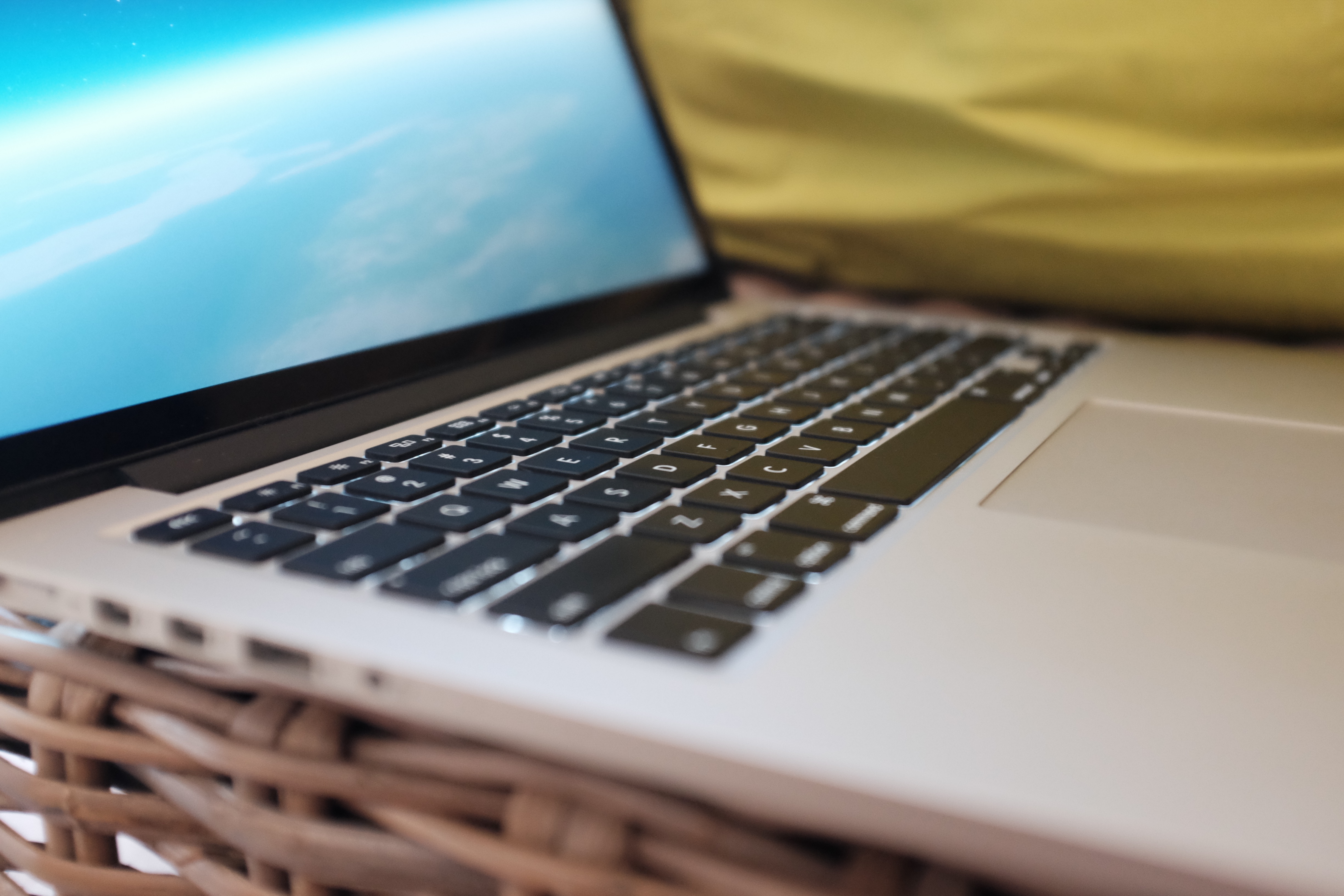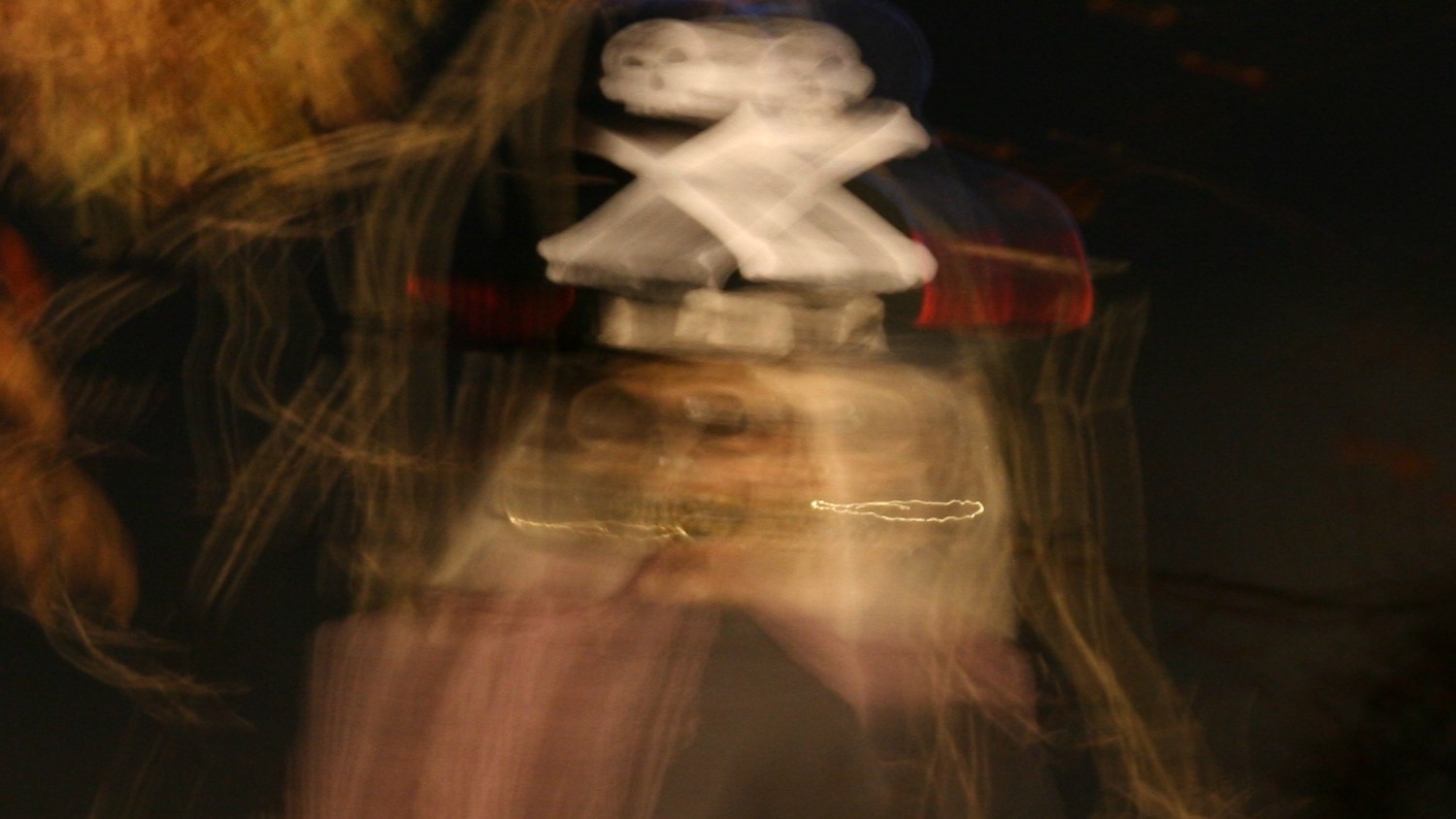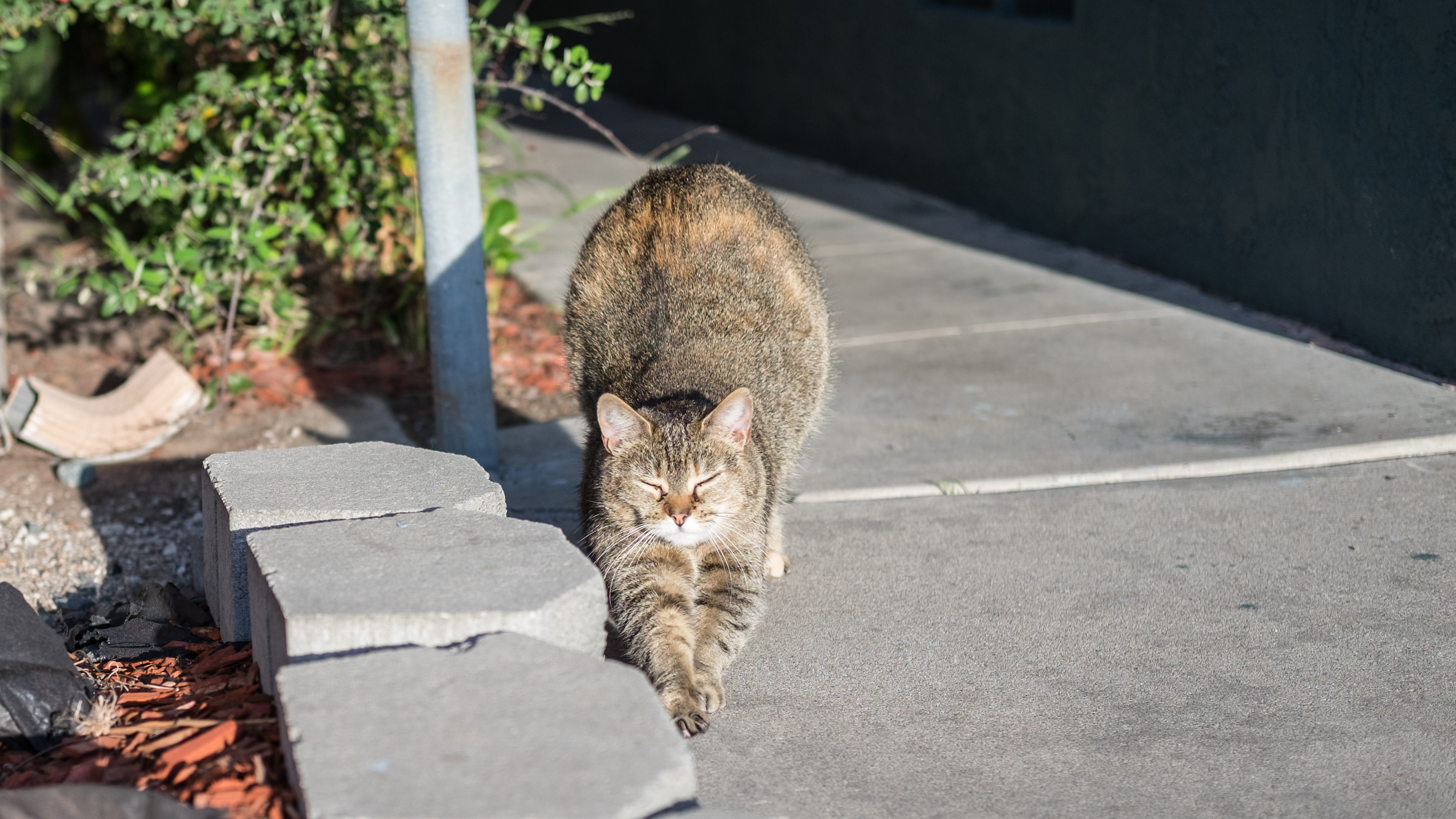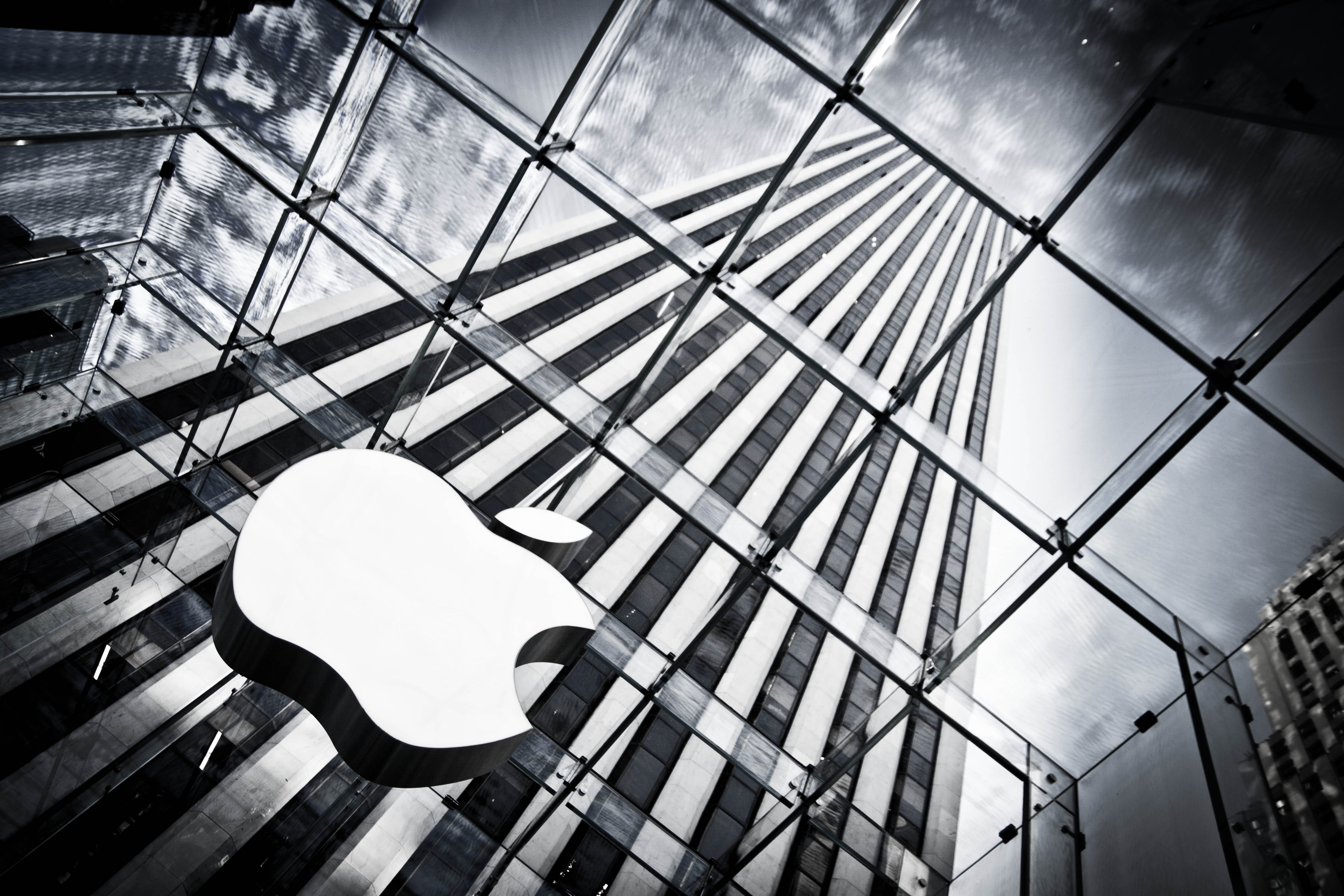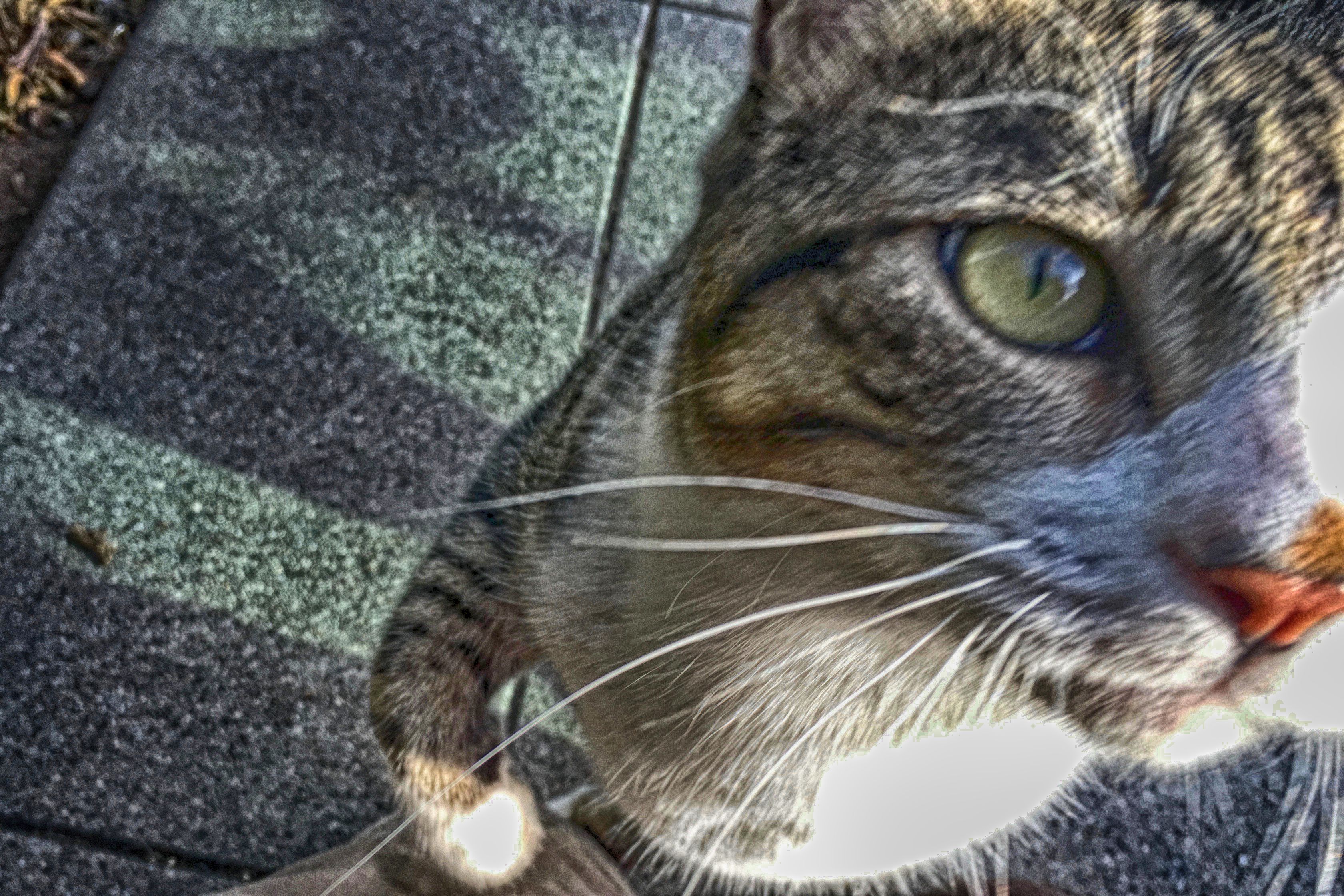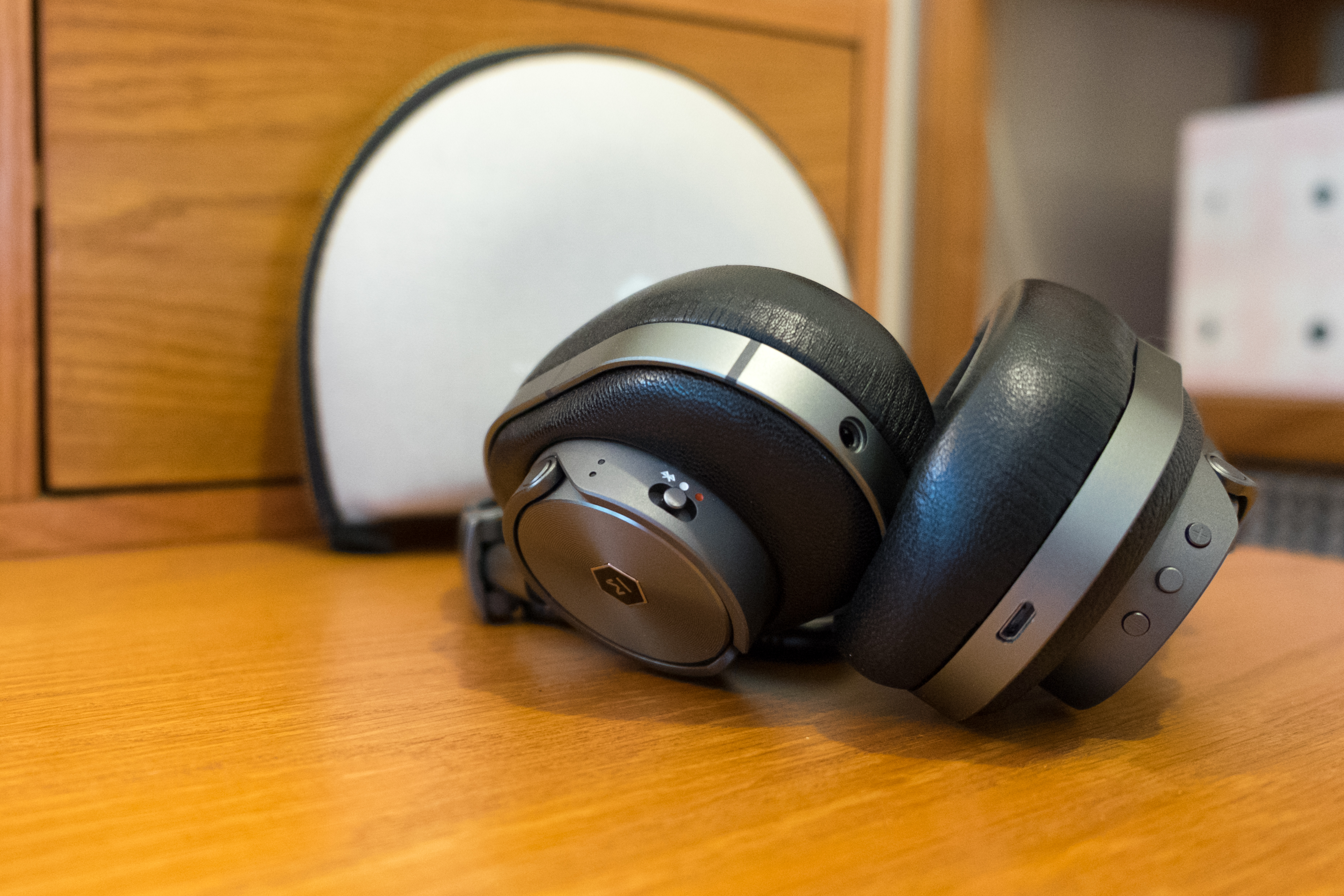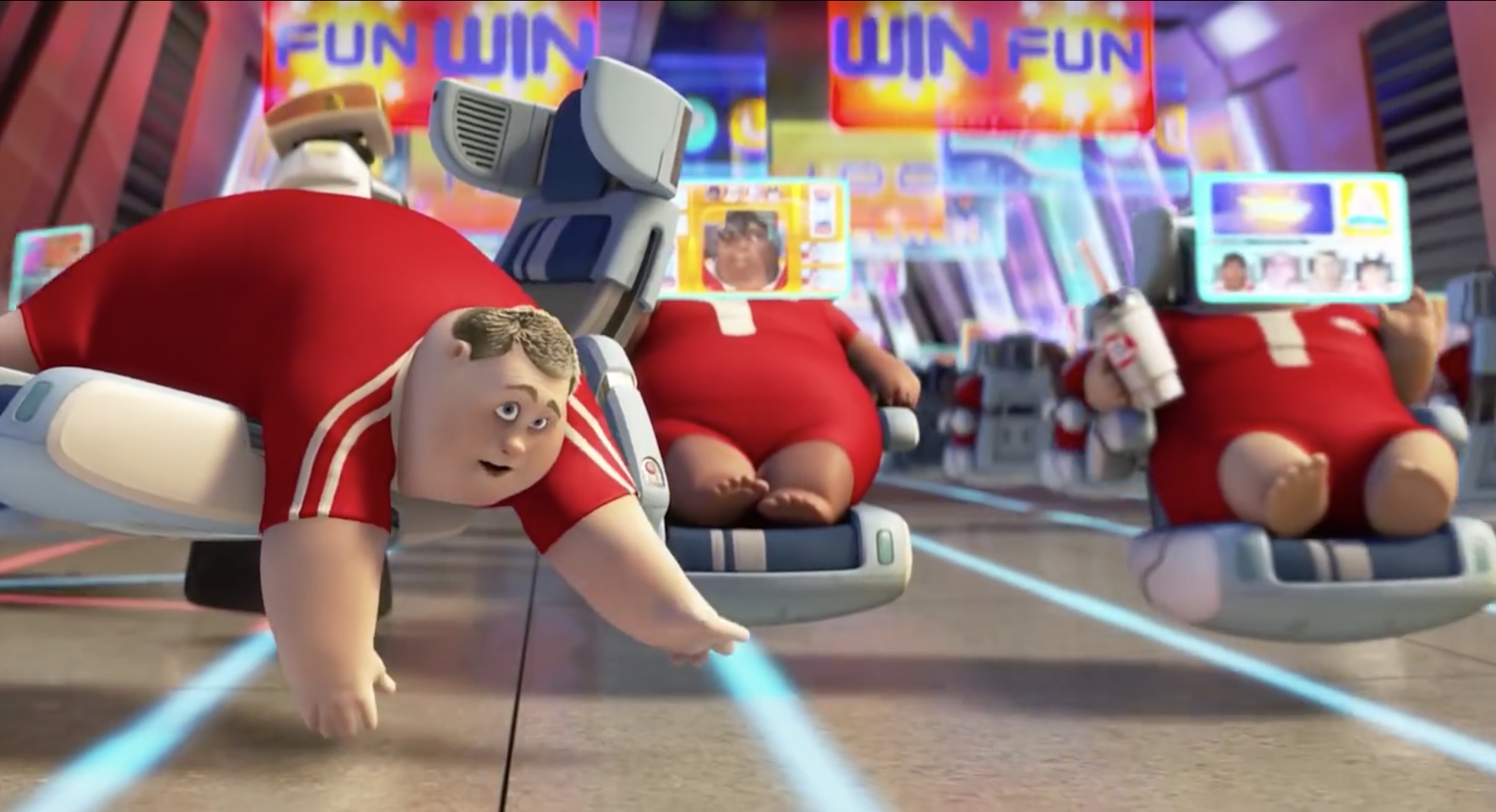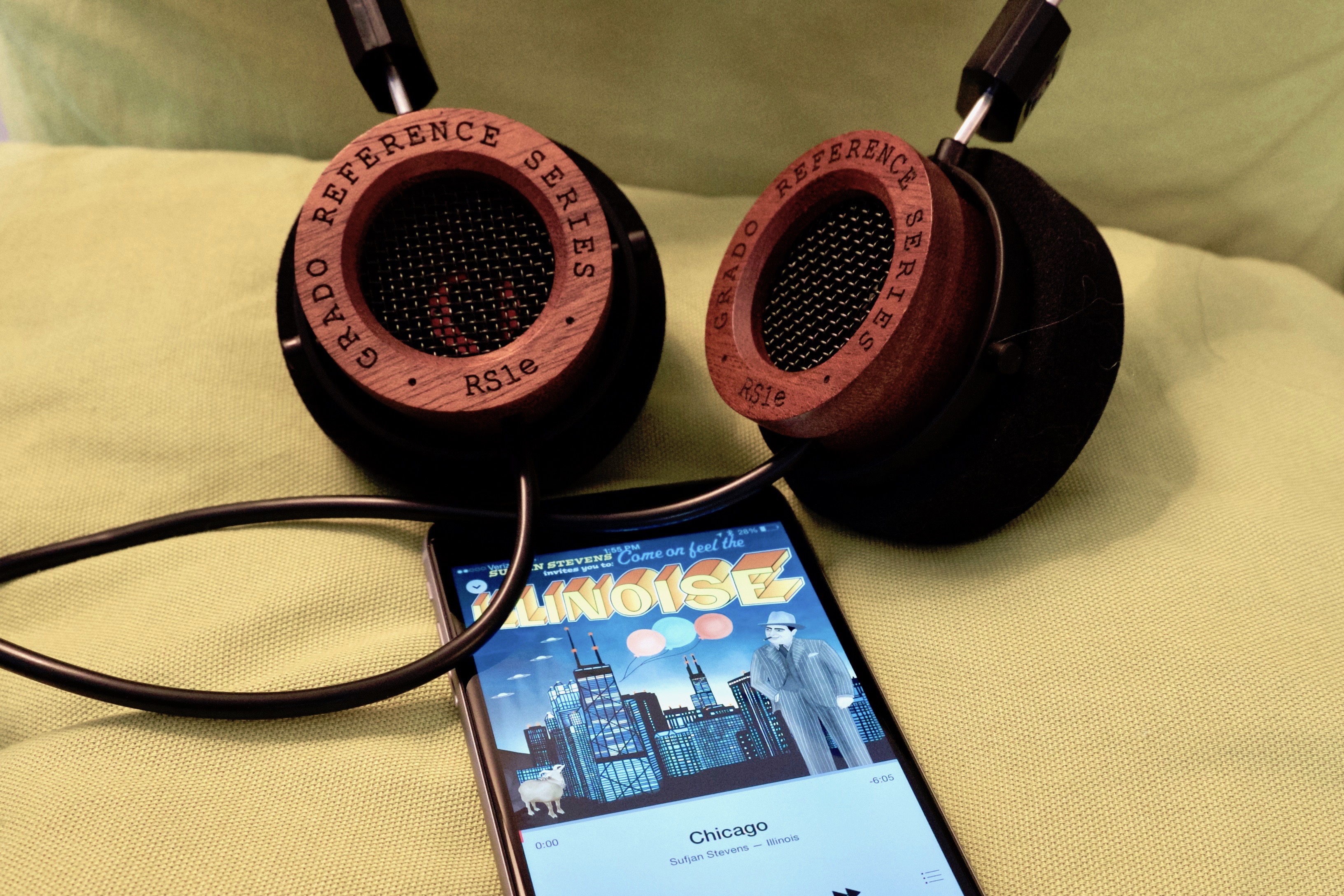Sunday night, Oct. 23, 2016, I crossed Monroe at Maryland, where the street makes a horseshoe that comes back to Maryland at Meade. A few houses down, two cats—almost certainly littermates—accosted me for attention. Were these two ever eager, meowing and rubbing on anything close; including me.
The cross-eyed one leaped to the sidewalk, rolling about and demanding pets fervently. The other did likewise, but never leaving the ledge and rubbing the bush repeatedly with her head. I shot more than 20 photos, using the Fujifilm X-T1 with Fujinon XF18-55mmF2.8-4 R LM OIS lens, but selected just two from among the last of them.

